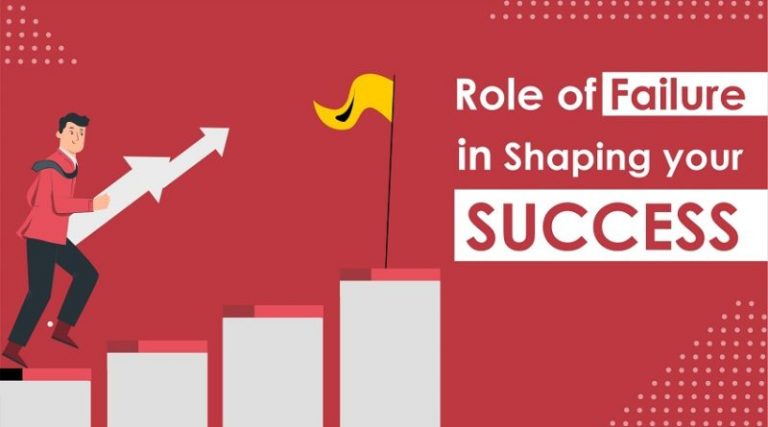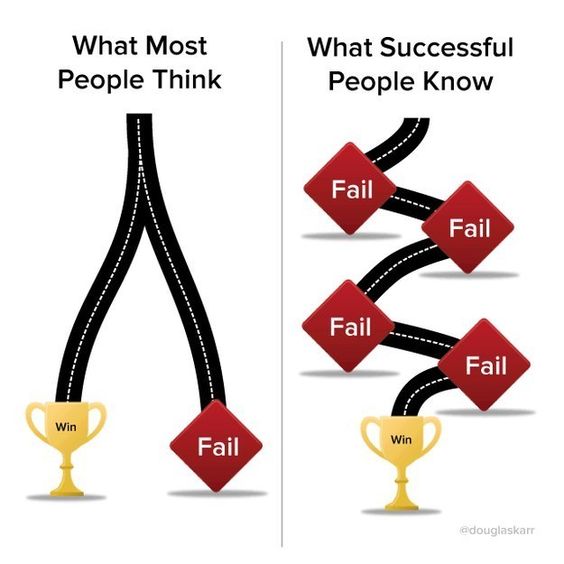
A résumé of failures promises to be an instrument of self-discovery and affirmation to reflect on the journey, experiences, and lessons learnt along the way.
By Neelam Malkani
In a society which adulates victors and shuns losers, speaking candidly about failures might be considered an absolute disgrace. So might be the idea of listing one’s failures.
All experts advise crafting résumés by cherry-picking the details of feats and accolades and minimizing the mentions of failures. In anticipation of the desired result, we act upon such recommendations, naively believing that we can create the perception of infallibility. Because the advice generally works, the idea of making a list of failures and setbacks sounds counterintuitive. However a résumé of failures promises to be an instrument of self-discovery and affirmation to reflect on the journey, experiences, and lessons learnt along the way.
In 2016, an esteemed professor at Princeton University published his résumé of failures, detailing all the grants he could not receive, the fellowship he was denied, and the papers he could not get published. This honest revelation, which aimed at bringing some balance to the skewed saga of triumphs, received admiration from all quarters, and more people in academia felt less inhibited to speak out about their failures. A similar trend picked up in some B-schools in India too, and students studying in premier institutes posted their failures on social media. This fresh bout of openness not only helped readers process their own failures positively but also discarded the aura of invincibility around the distinguished personalities.

Generally, while listening to the success stories, we start to believe that the star performers are innately gifted or their situations differ from ours: Steve Jobs was a born genius, or Amitabh Bachchan was born in The Bachchan family. We sometimes even attribute their successes to some divine intervention, ‘blissfully’ ignoring their grit, determination and indomitable spirit that made the ‘divine’ possible. Learning about setbacks, struggles, and disappointments of our ideals, we realize that they are also vulnerable and relate with them more on a ‘human’ level. This, in turn, helps us draw inspiration to deal with rejection and dejection in our lives.
However, we all undertake different journeys and face distinct circumstances. Hence, creating our list of failures, professional or personal, examining each outcome objectively and realizing how these adversities shaped us can be an illuminating experience and an answer to some critical questions: have we become resilient, tenacious, and solution-oriented or cynical, bitter, and nit-picking? Have we taken those failures in stride, or have we let those failures define and defeat us? Have we learnt our lessons and become humble and flexible, or do we follow the default pattern with dogmatic adherence? Finding these answers may require some contemplation but would surely be cathartic.
In fact, nothing can be more affirming than looking back on the past challenges we encountered and the actions we took to surpass them. No motivational speaker can be more helpful in instilling faith in our abilities than a mature reflection on past failures that we managed to turn into successes with our diligence. We might feel fulfilled because we took the risk for an initiative which did not culminate into a full-blown success but taught us invaluable lessons. It can also help overcome any misgivings about the tasks seemingly insurmountable at present.
Every person, every business, and every organization fails at some point. World’s fastest person missed the gold medal; the biggest company had to recall the products; the richest person witnessed his enterprises crumbing down. And when we ditch the trodden path and experiment in lives, failures are inevitable. Unfortunately, we have not practiced the skill of learning from our mistakes but only the skill of foisting blame on others. We have not developed an ecosystem which fosters learning from failures to pave the way for the future successes. In reality, failure is always an option, but giving up is not. Learning from a mistake is wisdom, but ignoring it is not.
Hence, making this list could be a transformative experience so long as we take failures as the feedback of what did not work for us in the past. Therefore, let’s not be afraid to venture out for the fear of failure, rather hope to fail better with each new endeavor. And remember, some goals are so worthy that it is sometimes glorious to lose. I can’t think of anything else to conclude this piece except the following quote by an iconic author who, unflustered by the constant rejections, enchanted entire generation of readers with her magical writing.
“It is impossible to live without failing at something, unless you live so cautiously that you might as well not have lived at all, in which case you have failed by default.” — J.K. Rowling
_______________
Neelam Malkani is a Bhopal-based educator and freelance writer